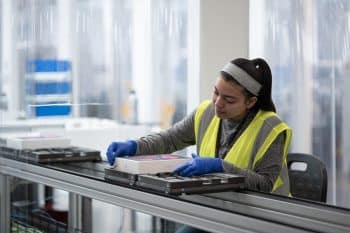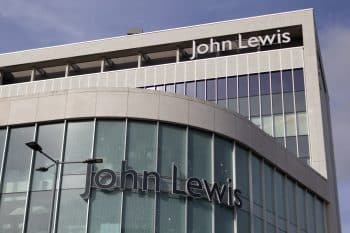Home » Employment News » Jobs for former incarcerated at U.S. rubber recycling plant
Jobs for former incarcerated at U.S. rubber recycling plant
https://www.whatjobs.com/news/employment-news/jobs-for-former-incarcerated-at-u-s-rubber-recycling-plant

By Nagasunder in Employment News, posted August 19, 2021
There is a lot of news regarding millions of job openings in the United States. But that isn't an issue for US rubber recycling. The Colton, the Calif.-based company, which diverts used tires from landfills and transforms them into rubber flooring for gyms and other places, has a hiring program for ex-offenders, who make up roughly half of the company's employees.
“Our workforce hasn’t fueled our growth,” says President and CEO Jeff Baldassari. “But it’s certainly helped support it.”
Baldassari joined U.S. Rubber in a general manager job role in 2019 and was named president and CEO a year later. The company, founded in 1996, purchases material from granulators that convert used tires into recycled crumb rubber, which it uses to manufacture sports flooring, acoustical underlayment, and other products.
“Initially, out of necessity,” adds Baldassari, the organization began hiring recently jailed persons about 2000. According to Baldassari, the Inland Empire, a region in Southern California next to Los Angeles home to several distribution hubs needs labor. The region has a large population of recently jailed people. As a result, the corporation began to hire such people.
But looking to grow the company after he took over in 2020, Baldassari decided to hire and train people with a criminal record with a new and improved program. Called Bounce Back! It takes what Baldassari calls a “holistic” approach based on the idea that “Economic stability is at the core of anyone’s success in life,” he says.
Carlos Arceo, for example, began working in 2019 after spending six months in a halfway house after serving eight years in prison. After several promotions, he started in a machine operator job and worked his way up to second shift manager. He was able to buy a two-bedroom apartment for his wife, two daughters, and six-month-old son thanks to his wages and work security.
A few key precepts underlie the Bounce Back! Approach. One is the need to create a support system. “You can control what goes on in your building for eight hours,” Baldassari says. “But you have to help your workers deal with all those other hours when they’re outside of the workplace.”
To that end, he hired a psychiatric rehabilitation counselor this year to assist staff with day-to-day challenges, including managing relationships and learning basic skills like opening a bank account. She works with staff over the phone on other days and comes in once a week for in-person meetings. All new hires, not just those who have been incarcerated, are welcome to meet with her. Typically, they schedule appointments for before or after one of their shifts.
Another cornerstone of the approach is to ensure that the environment is free of judgment. Working with halfway houses and county agencies to recommend potential employees -the company does not hire those convicted of murder, rape, or kidnapping, according to Baldassari, they employ an approach known as appreciative inquiry, which is organizational and leadership development philosophy that emphasizes mutual respect and collaboration.
That’s in part, says Baldassari, “To teach people to become team players,”—something which doesn’t come naturally to many formerly incarcerated people who’ve had to spend years tending to their own survival.
The company's recent growth would not have been possible without the new personnel. According to Baldassari, sales have doubled in the last 14 months, while employment increased by 80%. The company diverted roughly 9 million pounds of tires from landfills last year. It is expected to reach 15 million this year. Baldassari credits the company's expansion to a new online relationship with Home Depot, as well as sales to experts and a surge in orders from home-bound customers eager to build their own home gyms.
Source: Forbes










